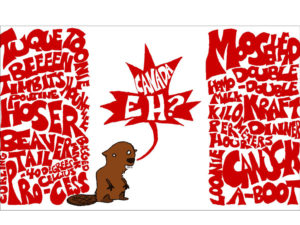I bring my heart to Jesus, with its fears,
With its hopes and feelings, and its tears;
Him it seeks, and finding, it is blest;
Him it loves, and loving, is at rest.
Walking with my Saviour, heart in heart,
None can part.
I bring my life to Jesus, with its care,
And before His footstool leave it there;
Faded are its treasures, poor and dim;
It is not worth living without Him.
More than life is Jesus, love and peace,
Ne’er to cease.
I bring my sins to Jesus, as I pray
That His blood will wash them all away;
While I seek for favour at His feet,
And with tears His promise still repeat,
He doth tell me plainly: Jesus lives
And forgives.
I bring my all to Jesus; He hath seen
How my soul desireth to be clean.
Nothing from His altar I withhold
When His cross of suffering I behold;
And the fire descending brings to me
Liberty.
 Here is another song by Herbert Booth, son of William and Catherine Booth, the Salvation Army’s founders. The following is additional information about him. Herbert was given considerable leadership responsibility at a young age. At eighteen, he was assisting his future sister-in-law, Florence Soper, in opening the Army’s work in Paris. There he wrote his first hymns – in French, after carefully studying a French hymnbook. At twenty, he was assisting his older brother, Ballington, in the training college for officers in London. From this location in Clapton, Herbert led a group called “The Salvation Songsters” as they toured England on six campaigns to evangelize, raise funds, and motivate young people toward officership. In the group were two men who became very influential in the Salvation Army’s music world: Fred Fry, who played a harp, and Richard Slater, who became known as “the father of Salvation Army music”. Herbert was placed in charge of the Army’s work in the British Isles when he was only twenty-six.
Here is another song by Herbert Booth, son of William and Catherine Booth, the Salvation Army’s founders. The following is additional information about him. Herbert was given considerable leadership responsibility at a young age. At eighteen, he was assisting his future sister-in-law, Florence Soper, in opening the Army’s work in Paris. There he wrote his first hymns – in French, after carefully studying a French hymnbook. At twenty, he was assisting his older brother, Ballington, in the training college for officers in London. From this location in Clapton, Herbert led a group called “The Salvation Songsters” as they toured England on six campaigns to evangelize, raise funds, and motivate young people toward officership. In the group were two men who became very influential in the Salvation Army’s music world: Fred Fry, who played a harp, and Richard Slater, who became known as “the father of Salvation Army music”. Herbert was placed in charge of the Army’s work in the British Isles when he was only twenty-six.
In the late 1890’s, Herbert grew dissatisfied with the Army’s administrative policies, and he wrote his father a sorrowful letter expressing this, as well as submitting his and his wife’s resignations. The couple then spent most of their lives on lecture tours in North and South America, South Africa, Australia and New Zealand. Their leaving the Army was a great loss, but Herbert’s sensitive songs live on and are favourites of many Salvationists.
Herbert’s sensitive songs live on and are favourites of many Salvationists. Share on XWORDS AND MUSIC: HERBERT BOOTH
S.A. SONG BOOK (1987 EDITION) #420 SECTION: THE LIFE OF HOLINESS – CHALLENGE
REFERENCE: RESEARCH BY PETER M. COOKE FOR LEAFLET WITH CD THE HYMN MAKERS






